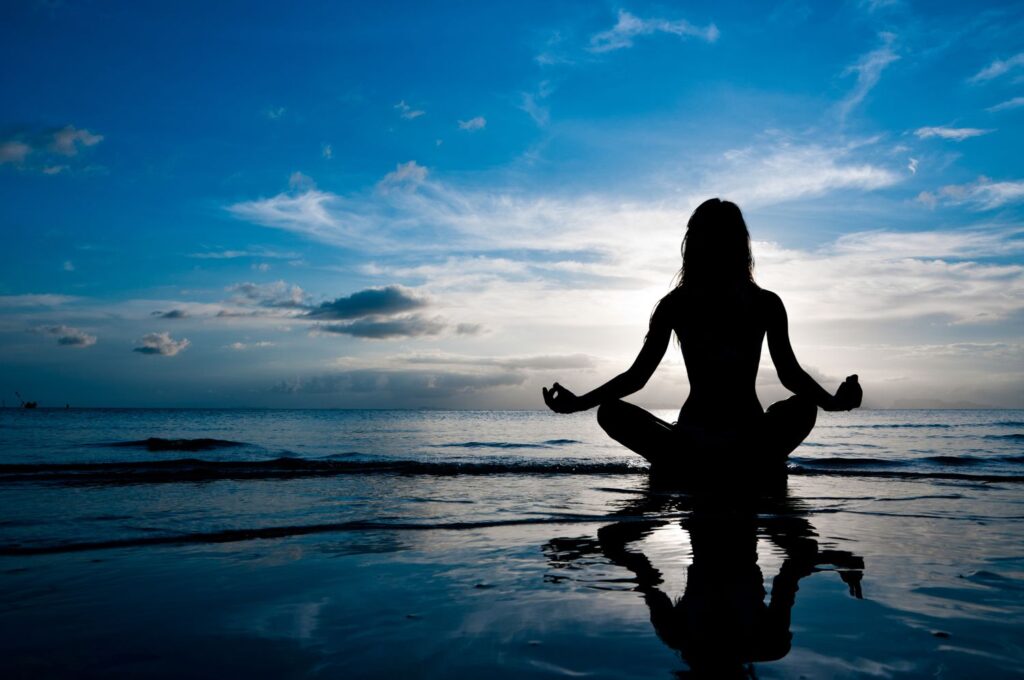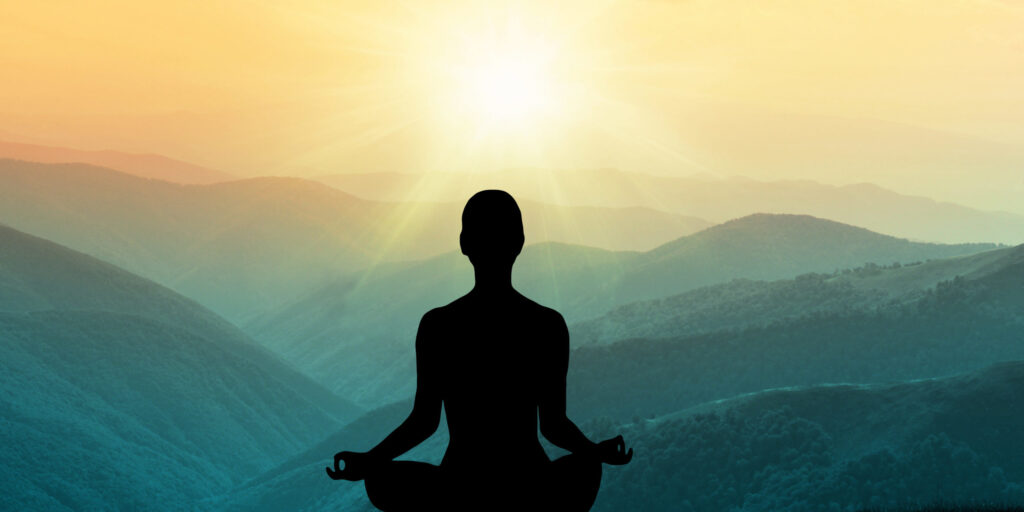In today’s fast-paced world, anxiety has become an increasingly prevalent issue, affecting millions of people worldwide. Whether triggered by stress, societal pressures, or personal challenges, anxiety can significantly impact one’s quality of life. While there are various coping strategies available, meditation stands out as a powerful tool for managing anxiety and promoting overall well-being. In this comprehensive guide, we will explore the principles of meditation, its benefits for anxiety relief, and practical techniques to integrate meditation into your daily routine.
Understanding Anxiety:
Anxiety is a natural response to stress or perceived threats, characterized by feelings of fear, worry, and apprehension. While occasional anxiety is a normal part of life, persistent or excessive anxiety can have detrimental effects on both mental and physical health. Chronic anxiety may manifest in symptoms such as restlessness, fatigue, difficulty concentrating, and irritability, impacting various aspects of daily functioning.
The Role of Meditation in Anxiety Relief:
Meditation, rooted in ancient traditions such as Buddhism and Hinduism, has gained widespread recognition in modern times for its profound effects on mental and emotional well-being. By cultivating mindfulness and awareness, meditation offers a holistic approach to managing anxiety. Research has shown that regular meditation practice can lead to significant reductions in anxiety symptoms, enhance emotional regulation, and promote a sense of calm and inner peace.
- Mindfulness Practice: Meditation involves cultivating mindfulness, which entails being fully present in the moment without judgment. This practice helps individuals observe their thoughts and emotions without becoming overwhelmed by them, thus reducing anxiety.
- Deep Breathing Techniques: Meditation often incorporates deep breathing exercises, which have been shown to activate the body’s relaxation response. Deep, intentional breathing slows the heart rate, lowers blood pressure, and calms the nervous system, all of which contribute to anxiety relief.
- Cultivating Calmness and Presence: Through regular meditation practice, individuals learn to cultivate a sense of inner calmness and presence. This state of being enables them to respond to stressful situations with greater clarity and equanimity, reducing the impact of anxiety triggers.
- Alleviating Anxiety Symptoms: Meditation serves as a tool for alleviating various symptoms of anxiety, including racing thoughts, restlessness, and physical tension. By fostering relaxation and a sense of inner peace, meditation helps individuals manage their anxiety more effectively.
- Incorporation into Daily Routine: By integrating meditation into their daily routines, individuals create a consistent and sustainable approach to managing anxiety. Regular practice strengthens the mind-body connection and builds resilience to stressors, promoting overall well-being.

Benefits of Meditation for Anxiety Relief:
- Stress Reduction: Meditation encourages relaxation and activates the body’s relaxation response, counteracting the physiological effects of stress. Through deep breathing and mindfulness techniques, individuals can soothe their nervous system and alleviate tension in the body and mind.
- Increased Self-Awareness: Mindfulness meditation cultivates self-awareness by directing attention to the present moment without judgment. By observing thoughts and emotions as they arise, individuals develop a greater understanding of their internal experiences, enabling them to respond to stressors more effectively.
- Emotional Regulation: Meditation enhances emotional regulation by strengthening the prefrontal cortex, the brain region responsible for impulse control and rational decision-making. As a result, individuals become better equipped to manage intense emotions and navigate challenging situations with equanimity.
- Improved Cognitive Function: Regular meditation practice has been linked to improvements in cognitive function, including enhanced attention, concentration, and memory. By training the mind to focus and sustain attention, individuals can reduce rumination and intrusive thoughts associated with anxiety.
- Enhanced Resilience: Meditation fosters resilience by promoting a mindset of acceptance and non-reactivity to difficult experiences. By developing a sense of inner stability and equanimity, individuals can navigate adversity with greater resilience and bounce back from setbacks more effectively.
Practical Techniques for Meditation:
- Mindfulness Meditation: Find a quiet, comfortable space and sit or lie down in a relaxed position. Close your eyes and bring your attention to the sensations of your breath as it flows in and out of your body. Notice the rise and fall of your chest or the sensation of air passing through your nostrils. Whenever your mind wanders, gently redirect your focus back to your breath without judgment.
- Body Scan Meditation: Begin by bringing awareness to different parts of your body, starting from the top of your head and gradually moving down to your toes. Notice any areas of tension or discomfort and allow them to soften with each breath. By scanning your body with mindfulness, you can release physical tension and promote relaxation.
- Loving-Kindness Meditation: Sit comfortably and close your eyes. Visualize someone you care about deeply and silently repeat phrases of loving-kindness towards them, such as “May you be happy, may you be healthy, may you be safe, may you live with ease.” Extend these wishes to yourself, loved ones, and all beings, cultivating feelings of compassion and connection.
- Guided Meditation: Utilize guided meditation recordings or smartphone apps to facilitate your practice. Choose a meditation theme or focus that resonates with you, whether it’s relaxation, stress relief, or self-compassion. Follow the guidance of the instructor and allow yourself to surrender to the present moment experience.
Incorporating Meditation into Daily Life:
To reap the full benefits of meditation, it’s essential to integrate it into your daily routine consistently. Start with small increments of time, such as 5-10 minutes per day, and gradually increase the duration as you become more comfortable with the practice. Experiment with different meditation techniques to discover what works best for you, and remember that consistency is key. Find moments throughout your day to pause, breathe, and reconnect with the present moment, whether it’s during your morning routine, lunch break, or before bed.
Establishing a Routine:
Dedicate a specific time each day for meditation, whether it’s in the morning upon waking up, during a lunch break, or before bedtime. Consistency is key to forming a habit and reaping the benefits of meditation.
Start Small:
Begin with short meditation sessions, even just a few minutes at a time, and gradually increase the duration as you become more comfortable. This approach helps prevent overwhelm and makes it easier to stick to your meditation practice.
Integrate into Daily Activities:
Incorporate mindfulness into everyday tasks such as walking, eating, or even washing dishes. By paying full attention to the present moment during these activities, you can turn them into opportunities for meditation and stress relief.
Create a Sacred Space:
Designate a quiet, comfortable area in your home where you can practice meditation without distractions. This could be a corner of a room or a cozy nook where you feel relaxed and at ease.
Use Guided Meditations:
Utilize guided meditation apps or recordings to help you stay focused and provide structure to your practice. These resources offer a variety of meditation techniques and themes, allowing you to explore what works best for you.
Be Patient and Kind to Yourself:
Remember that meditation is a skill that takes time to develop, and it’s normal to encounter challenges along the way. Approach your practice with patience, curiosity, and self-compassion, knowing that each session is an opportunity for growth and learning.
Conclusion:
Meditation offers a powerful antidote to anxiety, providing a pathway to inner peace, resilience, and emotional well-being. By cultivating mindfulness and self-awareness, individuals can learn to navigate life’s challenges with greater ease and equanimity. Through regular practice and dedication, meditation can become a lifelong companion on the journey towards anxiety relief and overall flourishing. Embrace the transformative power of meditation and embark on a journey of self-discovery and inner healing.


